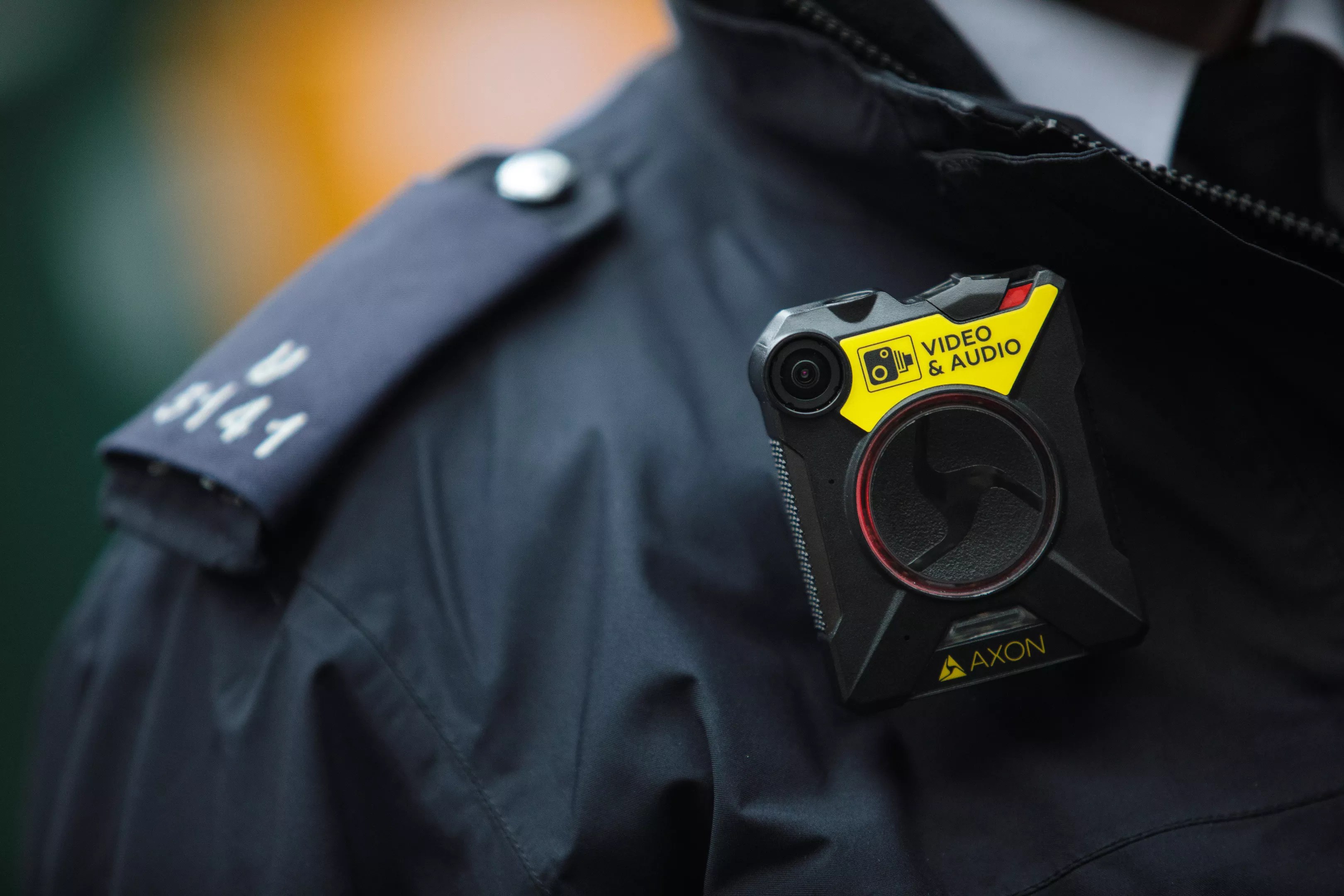
Photo by Jack Taylor/Getty Images

Audio By Carbonatix
Despite hundreds of thousands of dollars in investment and years of attempts to get Miami police to wear body cameras, it appears many officers are still failing to use the devices properly.
A review of Miami’s Civilian Investigative Panel (CIP) case investigations shows that at least 18 Miami Police Department officers have been cited by the CIP since January 2023 for breaching the department’s body-worn camera policy.
The violations – most of which involved officers muting their cameras while responding to incidents or failing to activate them entirely – come on the heels of the independent police oversight panel recommending in November that the police department beef up its police training and fleet of bodycams.
Among the newest violations, one officer failed to turn on his camera at the outset of a September 2021 encounter that ended with him wrangling a man to the ground outside the Magic City Casino and using a banned neck-hold.
Another officer, according to the CIP, failed to turn his camera on at all during his shift before an August 2022 encounter outside Churchill’s Pub with a homeless woman who alleged that the officer harassed her and called her a “fat ass.”
Several more officers were cited over a March 2022 incident in which they muted their body-worn cameras during negotiations with a suicidal man who wound up tumbling off a six-story building after an extended standoff with police.
“Body-worn camera footage is one of the best tools we have for accountability and transparency. If we don’t continue adapting the program and find best practices, it can easily fall into something that isn’t useful,” Rodney Jacobs, head of the Civilian Investigative Panel, told New Times after the release of the November report.
The CIP’s newest round of citations further its years-long tug-of-war with the police department over the use of body-worn cameras (or lack thereof).
The initiative to get Miami police to record their interactions with the public dates back to 2016, when the City of Miami paid $400,000 to outfit half of the police department’s 1,300-member force with body-worn cameras. The program was intended to improve transparency in policing.
But in the years since, the CIP has repeatedly had to call out the police department over its officers’ failure to follow department body-cam policy.
In its annual report for 2017, the CIP expressed its concern with the failure to use the devices and the lack of policy compliance. The panel noted that during the initial phase of bodycam implementation, it received a “significant” number of cases revealing that officers hasn’t used the cameras correctly.
And in 2018, the panel once again raised the issue with the department’s use of body cameras, sending a letter to then-Chief Jorge Colina warning that its bodycam policies were “not being strictly followed.” Though the CIP urged Colina to develop disciplinary procedures to ensure his officers follow the rules, several more officers were found in violation of camera policies the following year.
As previously reported by New Times, a four-year study of police incidents conducted by the CIP and released in November 2022 showed that body-worn cameras had not only shone a light on police misconduct but also helped exonerate officers who were accused of impropriety yet did nothing wrong.
The CIP offered a number of recommendations stemming from the report, including that the Miami Police Department implement a policy to prevent officers from improperly muting their cameras during “huddles” with supervisors. The panel also suggested remedial training for officers who repeatedly violate camera policy, procurement of more body-worn cameras, and assignment of the devices to sergeants, the majority of whom had not been wearing them.
Officers neglecting to unmute their cameras’ audio after hitting the mute button proved to be a persistent problem, Jacobs said.
“Video only tells one part of the story. To be able to discern what is happening in an interaction, you need the audio for all the information to come through. It can also erode public trust when an officer mutes their audio during a call,” Jacobs said.
A police spokesperson has not responded to New Times‘ request for comment.
Update published 3/21/2023 3:40 p.m.: The head of the Civilian Investigative Panel, Rodney Jacobs, tells New Times that the panel is in the process of trying to implement some of its recommendations into the Miami Police Department’s new body-worn camera policy.
But he says that even if there is perfect compliance from officers, cameras are not a “magic potion” to improve relationships between police and the community, and shouldn’t be viewed as a substitute for officer training. The community should “really start to look more at changing the culture of policing in and of itself,” Jacobs says.